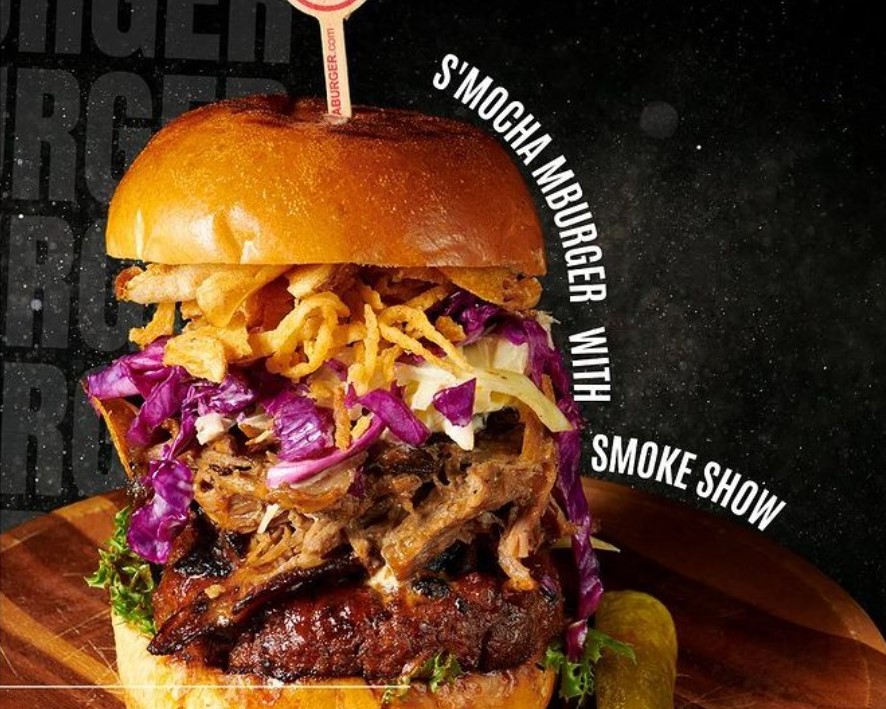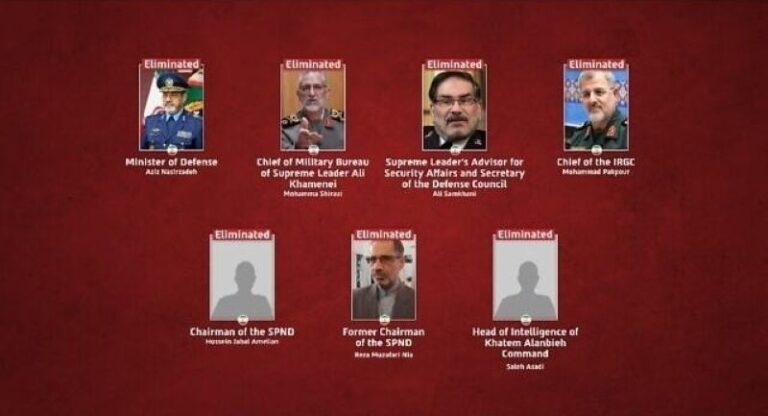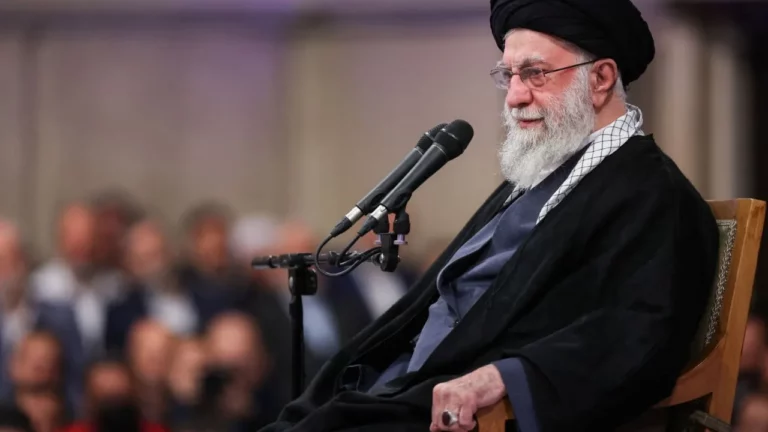By Rabbi Yair Hoffman for 5tjt.com
It was shocking JTA article. The article touted a new kosher restaurant with a “24K Gold Plated Golden-Burger.” The price? $175.
The article describes the burger – a 12-ounce short-rib burger wrapped in leaves of real, 24-karat gold, grilled and topped with black Australian truffle, crunchy onions and chips, house-made sauce and pickles. It is brought to the table in a custom hand-carved wood treasure chest, which will be opened at the table, triggering a smoke show and illuminating its contents.
This burger is a paradigm, reflective of where we are going, as a society, and even in our own society.
What has happened to us?
We spend enormous amounts of money on lavish Bar Mitzvahs and weddings. We buy and build mega-mansions and cars and designer label clothing to an excess – where seemingly there is no purpose other than to show off wealth – a consumption of a conspicuous type.
How have we, a nation that was once so spiritually elevated, once so pure of heart – succumbed to such consumptive behavior, reflected in this $125 burger sandwich? How have we become so materialistic?
To understand what has happened to us we need to understand what the term, “materialism” actually means. Materialism means that the only thing in our reality that truly exists and matters is material matter and the acquisition of it. It is the opposite of “ain od milvado,” Shlomo HaMelech’s understanding of Hashem and our role in life as expressed in Koheles (1:2). Plainly stated, we are in a battle – no mere skirmish or class but a battle for our very souls called:
“Ain Od Milvado versus Materialism.”
OUR INNER MOTIVATIONS
And, oh, in this battle there are so many nuances of motivations that have enveloped and darkened our neshamos as revealed in this JTA article.
Are we so shallow that we are telling the world in either a macro or micro sense that we have personally arisen from poverty and have made it? And for this end, have we entirely thrown frugality and common sense to the wind? Has this motivation of “yetzias anius” replaced “yetzias mitzrayim?
Or is our motivation for spending, spending, and more spending on useless, useless, and more useless items predicated upon an identity crisis of sorts – some hard-to-place yearning of a personal identity? Is it that deep inside the inner recesses of our minds and hearts, we don’t know who we are and what we stand for, and that is why we buy the latest SUV or iPhone or Galaxy 15 or Galaxy Juneteenth?
And, do we then therefore we opt for “superior social status” as our go-to self-definition? Moshe Rabbeinu is described by Hashem Himself as “Avdi Moshe.” Our true identity should be that we are Ovdei Hashem – we emulate Him by emulating His Midos. We are Baalei Chessed. We are Baalei Emes. But, if we do not self-define in this manner, we just go to our “comfort-food” of personal identity – our chocolate ice cream in the freezer. Is this vast ostentatious display of wealth and materialism just a mere checking off the box of “superior social status” in the universal search for personal identity?
A third possibility is that we so much need and crave the approval of others that we are willing to sacrifice our very future to keep that approval. We thus do not help our children with the purchase of a house and we rather spend so much on a vort or an ephemeral grand wedding that lasts for one night.
Is it that we have a inner need to not be anonymous in our society, we are not part of the community except for in this manner– and we need to shine somehow so that we are different than others?
Are there more possible motivations? Are there combinations of motivations? Yes, of course. But we now need to perhaps focus on solutions. Of course it always pays to examine our motivations, but we need a cure.
THE SOLUTIONS
Barasi yetzer hara – barasi Torah Tavlin. We need to get back to basics – to remember who we once were – who we have the potential to become. A good Mnemonic is the 4 D’s.
- Davening
- Dveikus
- Delving in Torah, Mussar and Mitzvos
- Detox
DAVENING
We can get into real davening once again. Some suggestions as to how to do this better is to go slower, to daven with or next to people who are more into it than we are. A yeshiva davening can be very inspirational because we see what we are missing out on. An inter-linear siddur helps a lot. And pursuing a deeper understanding – even off-time. Also, just putting ou finger on the siddue while we daven helps get us into it a bit more.
We can focus on the connecting to Hashem that is in our siddurim – the Dveikus to Hashem.
DVEIKUS
To achieve Dveikus we need to realize how important it is in a Torah way of life. We need to realize that Dveikus defines who we are.
Klal Yisrael is unique among all the nations of the world because of our unique ability to achieve a dveikus b’Hashem — a cleaving and closeness to HaKadosh Baruch Hu. It is this ability to achieve dveikus that gave us all the Nevi’im that we had. It is this ability to achieve dveikus which allows us to reach heights in our tefillos, our learning of His Torah, and in our middos. We had Chofetz Chaim in our midst because of this ability to achieve dveikus b’Hashem.
DELVING IN TORAH
There is a fascinating Unkelus and Ramban on Moshe Rabbeinu’s words of, “Am naval velo chacham..” (Dvarim 32:6). In this section, Moshe Rabbeinu is telling Klal Yisroel of the very serious violations of complete corruption and deviation from Hashem’s path that will ensue shortly after Moshe passes away.
The Ramban notes that Unkelus translates the word “naval” disgraceful – as coming from the term tired, that they were worn out or tired from learning Torah, as in, “navol tibol” (Shmos 18:18) . There Yisro informs Moshe that he will soon get tired if he does not delegate his judging obligations. It is strange that the underlying issue that Moshe is pointing out here that they will lose their desire for learning Torah.
It must be that Moshe Rabbeinu is identifying for them the root reason for their corruption and deviation. He is explaining that we do not fully appreciate and understand the primacy of Torah – and that we do not have a profound enthusiasm and delight in it. Without enthusiasm for Torah study – we enter in dangerous waters.
The author of the Iglei Tal, was Rav Avrohom Bornsztain zt”l (1838-1910), who was also the Sogotchover Rebbe – the father of the Shaim MiShmuel. He writes in his introduction that the essence of the Mitzvah of learning Torah is to take delight and be enthusiastic in its study – only in this manner will it penetrate into one’s very blood.
In order to ensure that one stays upon the straight path, it is crucial that one studies Torah with great enthusiasm and interest. One should also do so with gusto and delight.
DELVING IN MITZVOS
Chessed is also key, and is one of the most effective Mitzvos that can re-direct us. Saying complimentary words, especially heartfelt ones, is one of the biggest chassadim that one can do for another person. Rav Chatzkel Levenstein zt”l (1:5) writes that when a person says a few kind words to another, all he has invested are a few words, but the return on the investment is untold reward:
“Hashem provides for him with this act an abundant flow of bracha with His full and overflowing hand.” [Author’s suggested edit gedusha instead of kedusha – holy.] Chessed, and the love of it, forms the very blueprint of the world. Hashem is the essence of Chessed itself, and He created the world so that He can reward us for doing Mitzvos (Derech Hashem Chapter one). Thus, the Mitzvos involved in the performance of Chessed form a large part of the reason why Hashem created the world. Performing Chessed gives our life meaning.
DELVING IN MUSSAR
Boruch Hashem, we are a Torah nation, and many of us study Gemorah day and night – as we all should. The great Rav Yisroel Salanter zt”l used to say that just as there is profound depth in a sugya in the Talmud, there is also profound depth in the study of Mussar and Middos. Indeed, the Mishna Brurah (1:12) writes of the obligation to study Mussar every day.
DETOX
The Ibn Ezra writes on the declaration of the Bikkurim that vayagar sham bi’msai me’at – living there – without being involved in gashmius – in the pursuit of materialistic desires will bring us to be vayehi sham legoy gadol atzum varav – and we shall become a grand nation, awesome and great.
We must make the desire for materialism as nothing. We must, as a second step, adopt “conspicuous frugality.”
The Shaim MiShmuel (Ki Saitzay 5670) explains that the entire reason that we make an Aufruf on the Shabbos before the wedding is so that we not, Heaven forbid, spend mone frivolously on extras and waste – rather, on Shabbos the joy will most likely be only in purity – for Shabbos is a time to connect to Torah and the six days of creation.
We need to tone things down. We need to detox from our materialism and from our spending. That money could support Torah. It could pay tuitions for children in public school (contact author for 6 such children in our neighborhoods). At the very least the money spent on materialism could help our children with down payments on a house. May we and all our children, eineklach and ur-eineklach be zoche to build a bayis ne’eman b’yisroel.
The author can be reached at [email protected]












8 Responses
I don’t buy these and would not even in the case I could afford them. However I do not think it is our place to damage someone else’s parnassa, nor to give tzedaka with someone else’s money. This is especially so in Tammuz.
This sandwich is intended for those who scope the floor of the oceans to locate the Titanic. For a trip (to olam ha’emmes) in a metal tube under the ocean for $225,000 – maybe you can get a sandwich like this on the house… The rest of us eat leftover gefilta fish from shabbos.
But yes, those of us not inspired to be real bnei Torah, have succumbed to the world’s indulgences.
Unfortunately they’ll have customers. Just look at Dubai’s frum & chareidi millionaires and weddings.
I very rarely eat out, and if I do, it is in a budget friendly place like a pizza shop or a low end restaurant. Even if I could afford splurging, I wouldn’t do it. To me it is not something bnei Torah should be doing. We live in such a gashmiyusdik society, which is only getting worse. It is not something I aspire for.
Perhaps the lavish lifestyles of some Rebbes and their courts also need attention. These stunts are inexpensive marketing ploys to announce a very exclusive restaurant. the homes of some Rebbes are gashmiyut squared.
No one gave me a down payment on a house, sorry!
Firstly, the “we” and “our” is a lie. Plenty people are materialistic, but many people are not. In fact, most people wouldn’t buy such expensive food, even if a market for it exists. There are many yidden in many communities that are more practical than vain. Certainly, some areas are full of materialistic empty people, but not all communities and people are the same. Lumping everyone together is childish.
As for your deep reasons and terms…half of that is your will to can everything with psychological verbiage that amounts to nothingness.
We live in a very materialistic world, that’s all. People copy their surroundings. Millions and millions of people run after gashmius…does it surprise you that many yidden do too?
What were the big issues during the times of the enlightenment? The European intellectual movement of the 17th and 18th centuries. Did it lead to many yidden abandoning faith intellectually or was it primarily a materialistic issue? Right, it was an intellectual issue because that was what the world was engaged in. We are in the world of Apple, Tesla, fast food, fancy everything…stop looking for stupid ideas why people want gashmius. its self-evident.
Daniela:
1. This is not about damaging someones parnassah. Would you argue the same if a frum Jew were to open a movie theater or some other objectionable establishment in a frum neighborhood? This is about our collective responsibility to each other to be vigilant of breaches and corrosion in our religious foundations. No one here is looking to besmirch. כל ישראל ערבים זה לזה means we don’t bury our heads in the sand when others are doing improperly.
2. Proper reflection on our behavior is appropriate at all times. whether on a random Tuesday in December or right before Neilah. Harming others emotionally or financially is forbidden whether during Tammuz or Adar. Engaging in an honest Cheshbon Hanefesh is mandatory for G-d fearing Jews all day and every day.
We are all in this together.